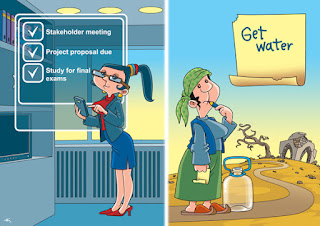COP26: Climate Justice = Gender Justice
With the arrival of COP26 just around the corner it seems topical to centre this week’s blog around the annual event. If you want to read more about COP26 and how it discusses how climate change is being managed both domestically and international before understanding the relevance of women to the summit, I would recommend reading this document produced by the UN.
There are various angles we can take when looking at the relationship of COP26 to gender whether that be through female leadership representation at the summit or the necessity of COP26 to address a more inclusive, gender-responsive approach. We know only too well that the needs of women and girls are being overlooked in the midst of the global climate crisis (Sultana, 2014). A 2020 mapping analysis of one hundred and thirty peer-reviewed articles published by the Carbon Brief demonstrated that women and girls face disproportionately high health risks from the effects of climate change when compared to men; with 89 of the 130 studies supporting this. Further, with females usually taking the role of provider of water it means that they are often the first to be affected by the lack of worldwide friction towards solving the crisis. Policy needs to move beyond the traditional borders between gender and environment and instead employ proactive and gender-based solutions to protect women and also mobilise the ability for women to mitigate, adapt and respond to climate threats (Sorensen et al., 2018).
From a representation basis at COP26 shockingly, The Guardian disclosed last year that the UK was going to put out a totally male team for the Glasgow summit which had pretty much zero diversity, a decision that was ultimately put under fire with 45% of the UK COP26 unit now being women.
Sadly, the problems don't stop there with the majority of the high ranking public facing roles still being occupied by men. Other concerns include the timely cost of the quarantine required which has caused great concern for women arriving from low-income countries. This could have a further knock on effect through increasing the inequity of the conference. After discovering the lack of equality on the UK leadership board for COP26, I was keen to move our lens to see if Africa's representation was any better.
Whilst there are currently no definitive statistics regarding what percentage of African representatives at COP26 are female I was able read a few articles such as one by The African Report. Again shockingly, and perhaps unsurprisingly, in the article in which twenty-four representatives are mentioned, not one is female. Aside from the worrying lack of gender diversity in positions of climate power, COP26 also draws further attention to the need for a better representation of the diversity of African countries in the complex reality of climate negotiations. This is put skilfully by in an article from the website African Arguments:
The discussions at COP26 cannot adopt a one size fits all approach when providing climate solutions to Africa; this would be a hinderance to both Africa and the planet. The paths for different African countries will undoubtedly be different, for example, whilst Ethiopia has incredibly good hydro and geothermal resources the economy in Nigeria is hugely dependent on oil and gas thus demonstrating that the pathway to a low-carbon economy and to climate development for these two countries would be vastly different (Burnside et al. 2021).
Hopefully this week’s discussion has helped further illuminate that it is of no doubt that gender-sensitive responses and lenses must be adopted with regards to the plans and policies discussed at COP26. The action-plan designed must reframe the inequity between men and women rather than heighten historical patterns. The potential of women with regards to the climate crisis and COP26 was beautifully framed in a recent article by Mary Robinson, a former UN commissioner for Human Rights, in which we must be careful not to view women through simply a "lens of vulnerability" but we need to view them as "vital agents of change."
Please leave a comment below regarding anything and everything regarding COP26 and gender. Until next time...

Thanks Verity for this really insightful post on COP26. Despite the large media coverage gender specific insights are still somewhat overlooked and you have done a great job of summarising the key points that have been largely left out of the current climate debates!
ReplyDeleteHi Tara - thank you very much for your kind comment, I completely agree. I find it shocking how overlooked gender is when climate is spoken about at large political events. Hopefully this will change in the near future.
DeleteThank you Verity for another insightful post that highlights the inequality in gender representation at COP26. Could the challenge of gender under representation in highlevel policy negotiation such as COP26 and other local gender inequality in relation to resource access and policy designs across the African continent more of an issue of knowledge production and capitalist/patriarchal models of rule? Just a question to think about.
ReplyDeleteHi Clement, that is a really thought provoking question! I would have to that I think much of the challenge of gender representation in high level policy negotiation is to do with patriarchal models of rule. The consequences of these norms are incredibly detrimental in the quest to create meaningful change in the world. It also must be noted that women's equal participation and leadership in political life is highly essential to achieve the sustainable. The point about knowledge production is also particularly interesting, I think there needs to be change from within institutions to encourage and foster the production of knowledge by females.
Delete